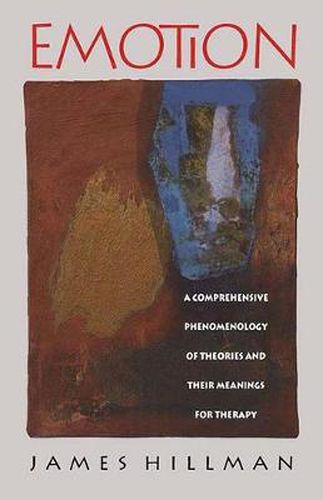Readings Newsletter
Become a Readings Member to make your shopping experience even easier.
Sign in or sign up for free!
You’re not far away from qualifying for FREE standard shipping within Australia
You’ve qualified for FREE standard shipping within Australia
The cart is loading…






What is the meaning of strong emotions? What is emotion itself? What is really happening in therapy when people express their emotions?
As James Hillman writes in his new preface to this sweeping study, he intends nothing less than to vitalize a standard topic of academic psychology by making the theory of emotion as crucial as is emotion itself in our lives. Hillman offers an informative and readable survey of a range of theories of emotion, focusing on the twentieth century but moving also from Greek thought to early Christianity to nineteenth-century German physiology. The work challenges readers to rethink our concepts and thereby to re-experience emotional phenomena.
Hillman’s study contributes to today’s renewed interest in the history of the body. Furthermore, his understanding of emotions in terms of epiphany makes a stimulating contribution to phenomenology. It is equally thought-provoking for the therapist, the philosopher, the intellectual historian, and the general reader.
$9.00 standard shipping within Australia
FREE standard shipping within Australia for orders over $100.00
Express & International shipping calculated at checkout
What is the meaning of strong emotions? What is emotion itself? What is really happening in therapy when people express their emotions?
As James Hillman writes in his new preface to this sweeping study, he intends nothing less than to vitalize a standard topic of academic psychology by making the theory of emotion as crucial as is emotion itself in our lives. Hillman offers an informative and readable survey of a range of theories of emotion, focusing on the twentieth century but moving also from Greek thought to early Christianity to nineteenth-century German physiology. The work challenges readers to rethink our concepts and thereby to re-experience emotional phenomena.
Hillman’s study contributes to today’s renewed interest in the history of the body. Furthermore, his understanding of emotions in terms of epiphany makes a stimulating contribution to phenomenology. It is equally thought-provoking for the therapist, the philosopher, the intellectual historian, and the general reader.